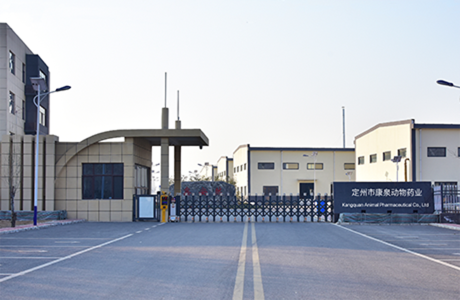- Afrikaans
- Albanian
- Amharic
- Arabic
- Armenian
- Azerbaijani
- Basque
- Belarusian
- Bengali
- Bosnian
- Bulgarian
- Catalan
- Cebuano
- Corsican
- Croatian
- Czech
- Danish
- Dutch
- English
- Esperanto
- Estonian
- Finnish
- French
- Frisian
- Galician
- Georgian
- German
- Greek
- Gujarati
- Haitian Creole
- hausa
- hawaiian
- Hebrew
- Hindi
- Miao
- Hungarian
- Icelandic
- igbo
- Indonesian
- irish
- Italian
- Japanese
- Javanese
- Kannada
- kazakh
- Khmer
- Rwandese
- Korean
- Kurdish
- Kyrgyz
- Lao
- Latin
- Latvian
- Lithuanian
- Luxembourgish
- Macedonian
- Malgashi
- Malay
- Malayalam
- Maltese
- Maori
- Marathi
- Mongolian
- Myanmar
- Nepali
- Norwegian
- Norwegian
- Occitan
- Pashto
- Persian
- Polish
- Portuguese
- Punjabi
- Romanian
- Russian
- Samoan
- Scottish Gaelic
- Serbian
- Sesotho
- Shona
- Sindhi
- Sinhala
- Slovak
- Slovenian
- Somali
- Spanish
- Sundanese
- Swahili
- Swedish
- Tagalog
- Tajik
- Tamil
- Tatar
- Telugu
- Thai
- Turkish
- Turkmen
- Ukrainian
- Urdu
- Uighur
- Uzbek
- Vietnamese
- Welsh
- Bantu
- Yiddish
- Yoruba
- Zulu
നവം . 08, 2024 08:45 Back to list
Tylosin Injection 200mg Treatment for Bacterial Infections in Veterinary Medicine
Tylosin 200 Injection An Overview
Tylosin 200 Injection is a popular veterinary medication primarily used in the treatment and prevention of various bacterial infections in livestock. Tylosin, an antibiotic belonging to the macrolide class, is particularly effective against gram-positive bacteria and some gram-negative bacteria, making it a versatile choice in veterinary medicine. This article aims to provide a comprehensive overview of Tylosin 200 Injection, discussing its applications, dosage, side effects, and considerations for use.
What is Tylosin?
Tylosin is an antibiotic that was initially developed to treat infections in animals. It works by inhibiting protein synthesis in bacteria, which prevents them from growing and multiplying. Its effectiveness against a range of pathogens makes it a staple in treating respiratory, gastrointestinal, and skin infections in cattle, swine, and various other livestock species. The introduction of Tylosin 200 Injection has provided a concentrated form that is easier to administer and more effective in treating severe infections.
Applications of Tylosin 200 Injection
Tylosin 200 Injection is primarily used in veterinary practices for the following purposes
1. Respiratory Infections Livestock are particularly susceptible to respiratory diseases, especially in crowded or unsanitary conditions. Tylosin is often utilized to treat conditions such as pneumonia and pleuropneumonia, effectively reducing mortality rates and improving overall herd health.
2. Gastrointestinal Infections Tylosin is effective in managing gastrointestinal infections in animals, including conditions caused by pathogens like Mycoplasma, which can lead to significant product losses in pigs and poultry.
3. Skin Infections Skin infections in livestock can lead to severe consequences if not treated promptly. Tylosin 200 Injection is an option for controlling such infections, ensuring the well-being of the animals and, in turn, the profitability of farming operations.
4. Preventive Measures In some cases, Tylosin is used as a preventive treatment in high-risk populations, helping to decrease the incidence of disease outbreaks within herds.
Dosage and Administration
tylosin 200 injection

The appropriate dosage of Tylosin 200 Injection depends on the species being treated, the severity of the infection, and the veterinarian's recommendations. Generally, it is administered intramuscularly or subcutaneously, and care must be taken to follow the manufacturer's guidelines closely. Overdosing can lead to adverse effects, while inadequate dosing may not effectively clear the infection.
Side Effects
Like all medications, Tylosin 200 Injection comes with potential side effects. While many animals tolerate the drug well, some may experience reactions, including
- Injection site reactions Swelling, pain, or redness at the injection site is relatively common. - Gastrointestinal disturbances Some animals may experience diarrhea or other gastrointestinal upset. - Allergic reactions In rare cases, animals can have allergic responses, which may necessitate immediate veterinary care.
It is crucial for veterinarians and animal caretakers to monitor treated animals for any signs of adverse reactions and to report any unusual symptoms to a veterinary professional promptly.
Considerations and Precautions
Before administering Tylosin 200 Injection, veterinarians should conduct a thorough assessment of the animal's health status and consider any existing medical conditions that might affect treatment. Additionally, Tylosin should be used with caution in animals that have a history of liver or kidney disease, as these organs are vital in metabolizing and excreting medications.
It's also critical to adhere to withdrawal times before animals are slaughtered for food production. This ensures that any residual antibiotic does not remain in the meat or milk, safeguarding public health.
Conclusion
Tylosin 200 Injection is a valuable tool in veterinary medicine, providing effective treatment for a range of bacterial infections in livestock. By understanding its applications, dosage, and potential side effects, veterinarians and farmers can better manage animal health and welfare. As with any antibiotic, responsible use is essential to prevent the development of resistance, ensuring that Tylosin continues to be an effective option for animal care in the future.
-
Guide to Oxytetracycline Injection
NewsMar.27,2025
-
Guide to Colistin Sulphate
NewsMar.27,2025
-
Gentamicin Sulfate: Uses, Price, And Key Information
NewsMar.27,2025
-
Enrofloxacin Injection: Uses, Price, And Supplier Information
NewsMar.27,2025
-
Dexamethasone Sodium Phosphate Injection: Uses, Price, And Key Information
NewsMar.27,2025
-
Albendazole Tablet: Uses, Dosage, Cost, And Key Information
NewsMar.27,2025













